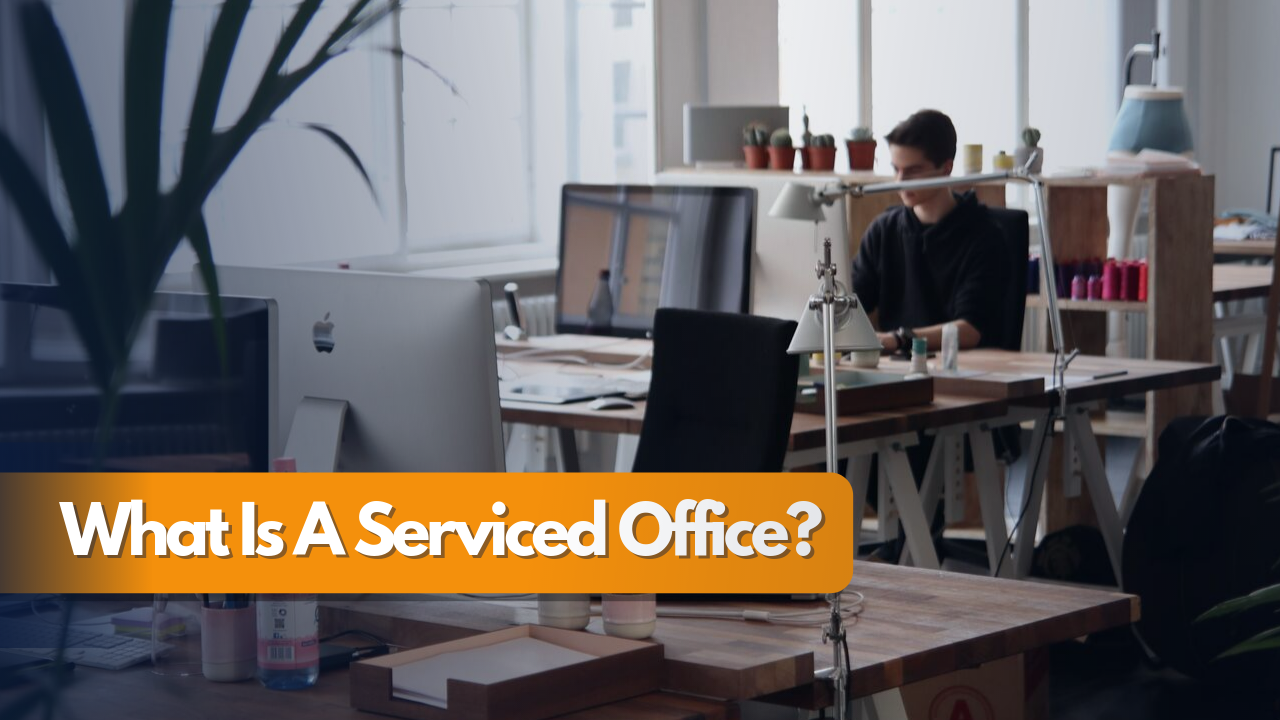- A serviced office provides a mix of people, place and technology with a highly flexible service agreement.
- Serviced offices have been around for decades and during that time the concept has undergone a number of identity changes.
- Serviced offices go by many names — business centers, executive suites, flexible workspace, managed offices and coworking, with the latter considered controversial by many.
A serviced office provides a mix of people, place and technology with a highly flexible service agreement, as opposed to traditional real estate which only offers the “place” and a longer term lease. The industry promise is a professional image and services.
Coworking also offers people, place and technology, but adds in the element of collaborative community as a primary focus. This sector’s promise is business growth with a collaborative community.
Serviced offices have been around for decades. During that time the ‘serviced office’ concept has undergone a number of identity changes, but its core offering remains the same – to provide furnished, fully equipped workspace on a flexible and inclusive basis.
Traditionally, serviced offices have attracted small businesses, startups and independent professionals due to the flexible, easily accessible and low-cost nature of the workspace. However as serviced offices have gained awareness, and particularly after the global credit crisis of 2008, it has become increasingly popular with larger companies looking for greater flexibility in their workplace strategy.
Today, serviced offices form an integral part of the wider flexible office industry, which continues to evolve and grow at a rapid rate. Flexible space currently accounts for less than 5% of current office inventory, yet JLL projects this figure could rise to 30% by 2030 due to insatiable levels of tenant demand for flexible term spaces.
In this guide we’ll cover:
- What is a Serviced Office?
- A Serviced Office Definition
- A Brief History of the Serviced Office
- What’s Included With a Serviced Office
- Common Terms Associated with Serviced Offices
- The Future of Work: What’s Next?
What is a Serviced Office?
A serviced office is a fully equipped, furnished office suite that a company or an individual can rent with inclusive monthly billing. The contract is flexible and often short-term, sometimes starting from 3 or 6 months up to an initial license length of 3 years, and typically renews on a rolling monthly basis.
What is flexible office space? This generally refers to the occupant’s ability to easily increase (or reduce) the size of their contracted office space at short notice, should the size of their business change. This may mean moving into a different size office within the same building, or depending on the office design, removing or adding an interior partitioning wall.
Serviced office companies manage multiple office suites within the same building. Given the frequent churn rate of the growing businesses that serviced offices attract, the centers are rarely 100% occupied and are normally able to accommodate changing space requirements quickly and easily.
Serviced offices go by many names — business centers, executive suites, flexible workspace, managed offices and coworking, with the latter considered controversial by many. Regardless of the controversy, they all offer varying levels of the common elements defined previously: people, place and technology with a flexible service agreement.
Suggested Reading: What is Coworking Space?
In addition to office space and furnishings, serviced offices have other on-site business amenities, which companies can access on a shared basis. This commonly includes meeting rooms, lounge and kitchen areas, printers and copiers, and event space.
A Serviced Office Definition
A serviced office provides a mix of people (receptionists and community managers), place (a mix of private and shared office space) and technology (broadband and telecoms) with a highly flexible service agreement.
A Brief History of the Serviced Office
The serviced office model began to gather momentum in the US and UK in the 1980s, but its roots can be traced back further.
- 1962: The OmniOffices Group was created, providing executive suites to small businesses.
- 1966: Fegen Suites provided furnished law suites for attorneys, providing reception services, telephony, and conference rooms.
- 1978: Serviced office giant Servcorp was founded by Alf Moufarrige in Sydney, Australia. The company now operates 160+ serviced office centers around the world.
- 1989: Regus (now IWG plc) was founded, and is currently the world’s largest serviced office company, operating almost 3,000 locations worldwide.
- 1995: A hackerspace, C-base, was founded in Berlin, which became known as one of the earliest forms of coworking.
- 2005: The official first ‘coworking space’ opened in San Francisco by Brad Neuberg. That same year, Impact Hub launched its coworking space in London. Today there are over 100 Impact Hubs around the world.
- 2010: Adam Neumann and Miguel McKelvey founded WeWork, a shared workspace company. Today WeWork operates more than 560 flexible office locations around the world.
Suggested Reading: History of the Flexible Workspace Industry
Today, new serviced office companies continue to launch and existing companies continue to expand in new ways, and to new locations.
The serviced office model has diversified significantly since its inception in the 1960s, and most serviced office centers now offer a hybrid mix of flexible workspace to suit multiple requirements, including private offices and shared coworking space.
What’s Included With a Serviced Office
In addition to office space and furnishings, serviced offices have other on-site business amenities and services, which companies can access on a shared basis.
This commonly includes:
| Shared Facilities | Services |
| Meeting rooms and event space | On-site receptionist to greet guests |
| Lounge and kitchen areas | Live call answering in company name |
| Roof terrace or outdoor space | Mail handling and forwarding |
| Printers and copiers | Admin assistance |
Usage of these amenities may be included within the client’s monthly bill, or available at an extra cost, depending on the contract they have with the office provider.
Enabling clients to share these services and resources provides reduced costs and access to equipment which may otherwise be unaffordable.
Common Terms Associated with Serviced Offices
- Flexible office
- Business center
- Executive suites
- Coworking space
- Managed office
The Future of Work: What’s Next?
The serviced office is constantly evolving. While its main offering — people, place and technology combined with a highly flexible service agreement — remains the same, the world of work is changing, along with the requirements of the workforce.
The future of work is flexible, and the workplace is adapting to meet the needs of an increasingly mobile workforce, who value flexibility more than traditional ‘perks’ such as salary and bonuses. Serviced offices provide an environment that is service led and flexible to its core, providing people with ample choice and a variety of spaces that lead to greater engagement and interaction. In short, a flexible workplace is an asset that can help reduce costs, drive business resilience, and improve workforce productivity.


 Dr. Gleb Tsipursky – The Office Whisperer
Dr. Gleb Tsipursky – The Office Whisperer Nirit Cohen – WorkFutures
Nirit Cohen – WorkFutures Angela Howard – Culture Expert
Angela Howard – Culture Expert Drew Jones – Design & Innovation
Drew Jones – Design & Innovation Jonathan Price – CRE & Flex Expert
Jonathan Price – CRE & Flex Expert












